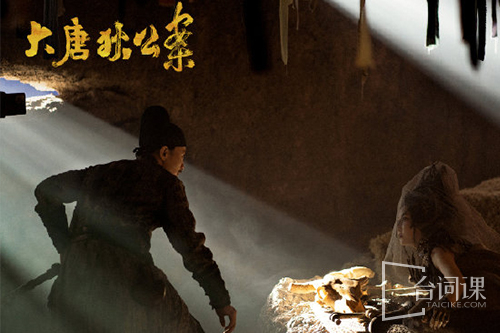《Judge Dee’s Mystery》Who is the author of the novel?
《Judge Dee’s Mystery》Who is the author of the novel?Are you a foreigner?If you want to know these contents, you might as well read the introduction of this article. I hope that through the content of the article, you can better understand the content of 《Judge Dee’s Mystery》.
《Judge Dee’s Mystery》Who is the author of the novel?
《Judge Dee’s Mystery》The author of the novel is Goluope, who is Dutch.

Gao Luopei, also known as Xiaowang, also known as Zhitai, was originally named Robert Hans van Gulik, a China expert, born on August 9, 1910 in Zatfen, the Netherlands, a Dutch sinologist, orientalist, diplomat and translator.,novelist.As a Dutch professional diplomat, he is studious and studious, and has mastered 15 languages including Greek, Latin, English, German, French, Italian, Spanish, Indonesian, Malay, Arabic, Chinese, Tibetan, Sanskrit, and Japanese, which has provided him with great academic achievements.A solid foundation has been laid for achieving fruitful results.
He has been posted to Surabaya, Batavia, Tokyo, Chongqing, Washington, New Delhi, Beirut, Damascus, Kuala Lumpur and other places in India, with positions ranging from secretary, counselor, minister to ambassador.Although his official career was smooth sailing, it was his achievements as an amateur sinologist that will be remembered for generations to come. The Dutch people's understanding of China should also be attributed to his dissemination of Chinese culture to a certain extent.His detective novel-Judge Dee’s Mystery-successfully created China’s Sherlock Holmes and was translated into and published in many foreign languages, leaving a significant mark in the history of Sino-foreign cultural exchanges.
Colopy continued to publish on Sinology throughout his long and fruitful academic career.After completing his dissertation, he began to translate the works of the ancient Chinese philosopher Gui Guzi.In that era when linguistic research dominated the world of European Sinology, this was an insightful work. Unfortunately, the manuscript was destroyed in the Second World War.Always inclined to choose topics close to his personal preferences rather than keep up with academic fashions, he wrote a large number of highly original research monographs, most of which are still in print forty or fifty years later.
While in Chongqing, Gao Luopei read a public case novel published in the late Qing Dynasty - Wu Zetian's Four Mysterious Cases.Impressed, after an in-depth study and comparison of Western detective novels and Chinese public case legends, Gao Luopei realized that the criminal investigation skills of ancient Chinese judges described in the book were both the use of logical reasoning and the detection of strange cases.In terms of ability and criminal psychology literacy, he is even better than modern Western detectives such as Sherlock Holmes and Sheriff Gray.He also discovered that Chinese public case novels had been popular in the East for hundreds of years before the advent of Western detective novels, and short stories with detective themes were widely circulated in China more than 1,000 years ago, and the images of heroic figures in them also appeared early.Appeared on the stage in ancient China for centuries, or were described vividly by storytellers of the time.
Gao Luopei’s profound knowledge of Chinese culture, art, law and social history is fully reflected and used to its fullest extent in Judge Dee’s Mystery.While describing Di Renjie's work in different periods and regions to solve difficult cases, the book also provides an extensive and in-depth description of ancient Chinese social life, people's customs and customs.The book praises Di Renjie's decision-making for the people and careful thinking, and declares that the evil forces will eventually be defeated and punished by law.While narrating the story and unfolding the plot, the work skillfully combines the laws, famous objects, customs, and human relationships of ancient Chinese society with knowledge of modern Western psychology and detective science, and integrates the structure of small stories within big stories in Eastern novels.The method is integrated with the sudden changes and aftermath of modern Western literature.In terms of narrative style and writing techniques, it is different from Chinese public case novels and Western detective stories of Sherlock Holmes, Arsene Lupin, and Poirot. It achieves the complementarity and integration of Eastern and Western literature.
To sum up, the editor has provided you with all the content about who is the author of the novel -Judge Dee’s Mystery.If you think this article is beneficial to you, please continue to follow us, we will present more latest and richest plot analysis and character analysis for you.
Website Disclaimer: The content of “《Judge Dee’s Mystery》Who is the author of the novel?” on this site is provided by user "ZenithZoner" and is for display purposes only. Copyright belongs to the original author. If your rights have been infringed, please contact us, and we will remove it as soon as possible.
- 1 TV series《Be fearless 2》broadcast time
- 2 《Be fearless 2》Are Luo Yingzi and Chen Shuo together?
- 3 《The story of pearl girl》Episode 16 plot introduction
- 4 《Fearless》 Episode 2 plot introduction
- 5 Thai drama《Jack and Joker》broadcasting platform
- 6 《The night I can't go back》Plot introduction
- 7 《Be fearless 2》Plot introduction
- 8 《Men in Love》 Episode 39 plot introduction
- 9 Korean drama《Sweet Home 3》is confirmed to be released on July 19
- 10 《The burning fire shimmers in the world》Plot introduction
- 11 《Be fearless 2》cast
- 12 《tridenti》Drama calendar
- 13 What is the name of the short play between Er Hu and Wen Ruyu?
- 14 《I found my baby after bankruptcy》Plot introduction
- 15 《Falling into her various charms》also known as《Falling into rouge》Plot introduction

